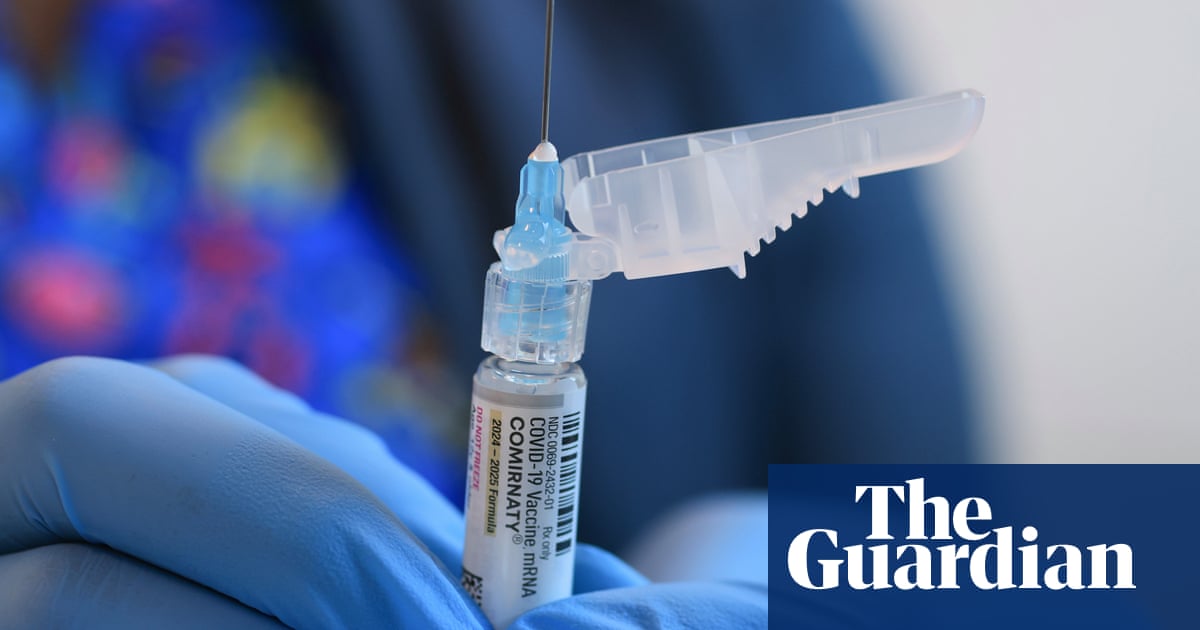The Shift in Vaccine Confidence: A Closer Look at mRNA
In recent months, a significant shift has emerged among U.S. health officials regarding messenger RNA (mRNA) vaccines, raising questions about the nation’s preparedness for future pandemics. The abrupt change in stance reveals a deepening concern among public health experts about the broader implications for vaccination strategies and public health.
Background on mRNA Vaccine Success
mRNA vaccines, which represented a remarkable breakthrough in combating the Covid-19 pandemic, are built on decades of scientific research. Their development earned recognition, including a Nobel Prize, underscoring their potential not only for preventing infectious diseases but also for treating certain cancers and rare conditions. Prior to the recent changes, millions of people worldwide received these vaccines, with extensive monitoring of their efficacy and side effects.
Recent Actions and Concerns
Under the Trump administration, a significant $766 million grant to Moderna for the development of H5N1 bird flu vaccines was canceled. This move, coupled with new restrictions on Covid mRNA vaccinations, suggests a troubling departure from the once-prominent public health strategy. The recent dismissal of an independent advisory committee for the Centers for Disease Control and Prevention (CDC) adds to the concerns.
Health experts, including Dr. Paul Offit from the University of Pennsylvania, are sounding the alarm. According to Offit, the current administration seems determined to make vaccines "less available, less affordable, and more feared." Such actions not only impede the fight against current diseases but could significantly hinder responses to future pandemics.
Implications for Pandemic Preparedness
Jennifer Nuzzo, a professor at Brown University’s School of Public Health, outlines the urgency of embracing mRNA technology. "We don’t know what the next pandemic virus is going to be," she says, highlighting the potential of mRNA to rapidly adapt to newly identified viruses. Unlike traditional vaccines that require lengthy production processes, mRNA vaccines can be customized quickly to meet challenges posed by emerging infectious agents.
Furthermore, the lack of reliance on egg incubation simplifies production, addressing potential supply chain issues that arise due to events like bird flu outbreaks. Given that the U.S. struggled with vaccine shortages during the 2009 swine flu pandemic, experts argue that current developments appear poised to repeat past mistakes.
Misinformation and Vaccine Hesitancy
Despite their promise, mRNA vaccines have become embroiled in misinformation campaigns. Some skeptics spread false claims linking these vaccines to fertility issues or genetic alterations. Additionally, sensational conspiracy theories have persisted, with some alleging that Covid vaccines lead to sudden deaths or that they include microchips for surveillance.
Public figures, including Robert F. Kennedy Jr., have played a notable role in amplifying anti-vaccine sentiments, branding mRNA Covid shots as the "deadliest vaccine ever made." As a lifelong anti-vaccine activist, Kennedy has gained visibility by honing in on overlapping concerns regarding vaccine safety and efficacy.
Political and Legislative Ramifications
Recent legislative actions signal a concerning trend toward targeting mRNA vaccines, prompting fears among experts for the future of public health in America. As the FDA proposes restricting boosters to high-risk groups, and the CDC revises vaccine recommendations notably downward for children and pregnant people, essential access to vaccinations could be compromised.
The statistics are alarming: tens of thousands of Americans were hospitalized or died from Covid in the prior year, including significant numbers among children. With vaccination rates among young children hovering around 5%, there are stark implications for public health, particularly for vulnerable populations like infants and pregnant individuals.
Broader Consequences for Vaccine Research
The cancellation of funds for the H5N1 vaccine trials jeopardizes not only the U.S.’s pandemic readiness but also allows other countries to capitalize on American investments in vaccine technologies. Furthermore, the cessation of HIV vaccine research and layoffs among vaccine officials highlight a trend that could inhibit future advancements in immunization science.
Efforts are underway across several diseases, including cancer and RSV, that capitalize on mRNA technology. However, growing regulatory hurdles and limitations could substantially stymie these initiatives.
The Fragility of Vaccine Acceptance
The current climate reveals a delicate balance between public health priorities and growing anti-vaccine campaigns. The misinformation machine has ramped up, and the political landscape is increasingly polarized against established medical guidance. Should anti-vaccine advocates succeed in linking vaccines to broader societal harms, the consequences could be dire.
As experts like Offit warn, this shift not only endangers public health but could create a chilling effect on vaccine innovation, regressively impacting community immunity across various demographics. The evolving narrative surrounding mRNA vaccines encapsulates a pivotal moment in public health discourse, emphasizing the importance of informed decision-making and grounded scientific evidence.
In sum, the recent upheavals regarding mRNA vaccinations illustrate a precarious intersection of public policy, health technology, and societal perceptions. The landscape ahead is fraught with challenges, urging stakeholders at all levels to engage constructively to safeguard the nation’s health against future threats.


